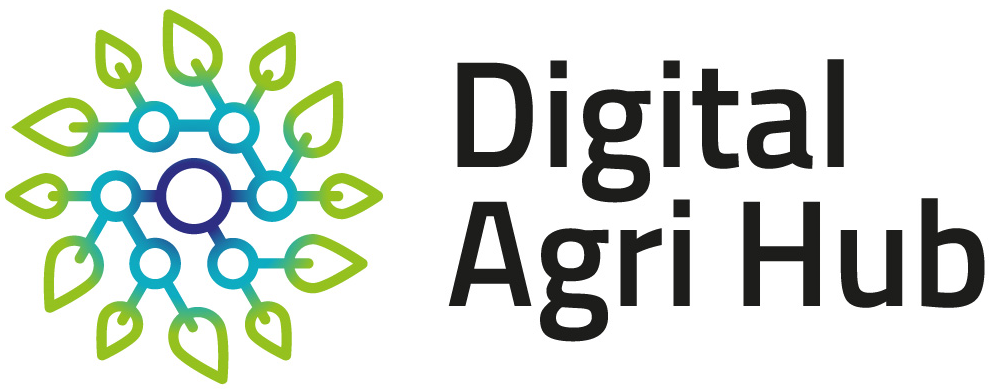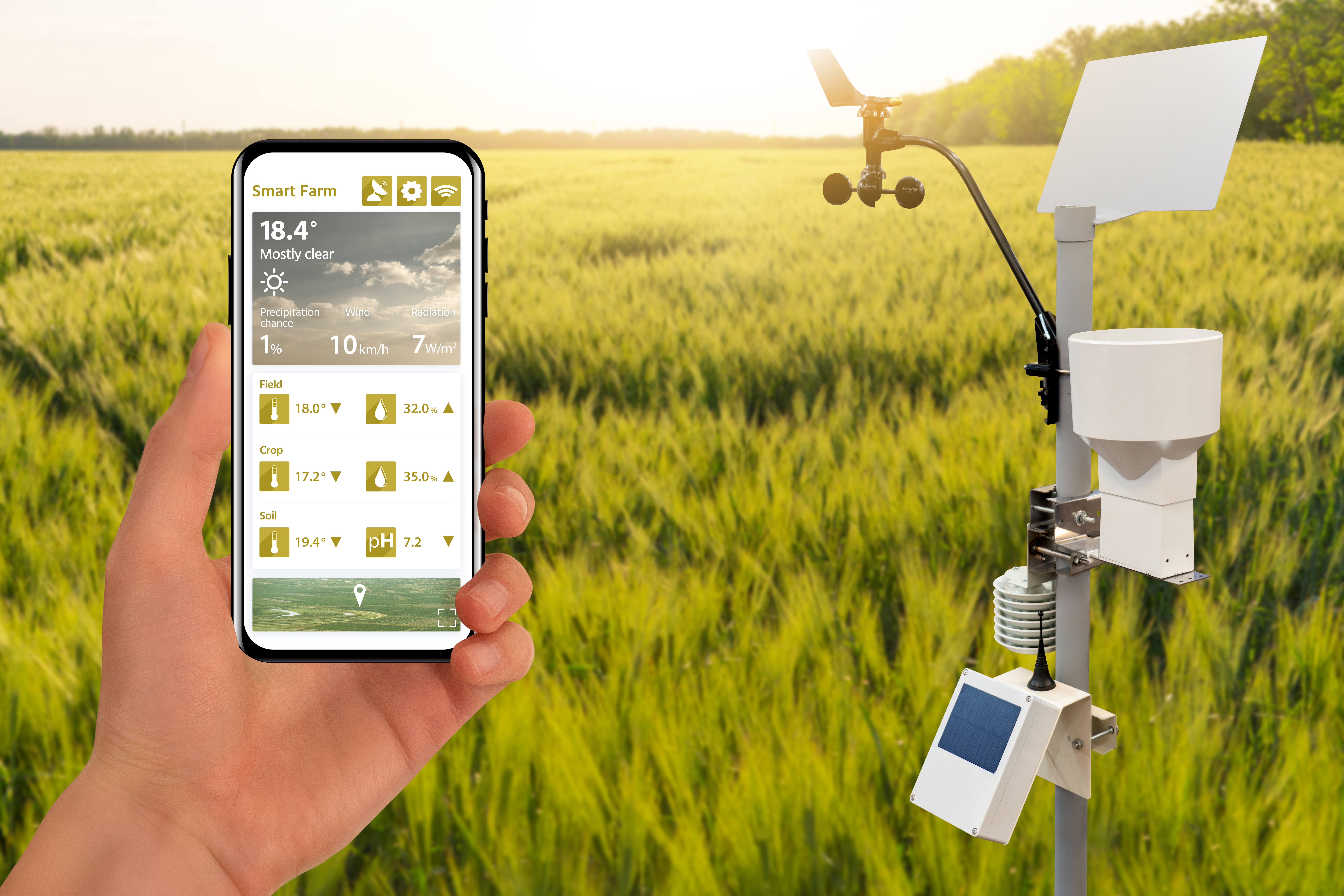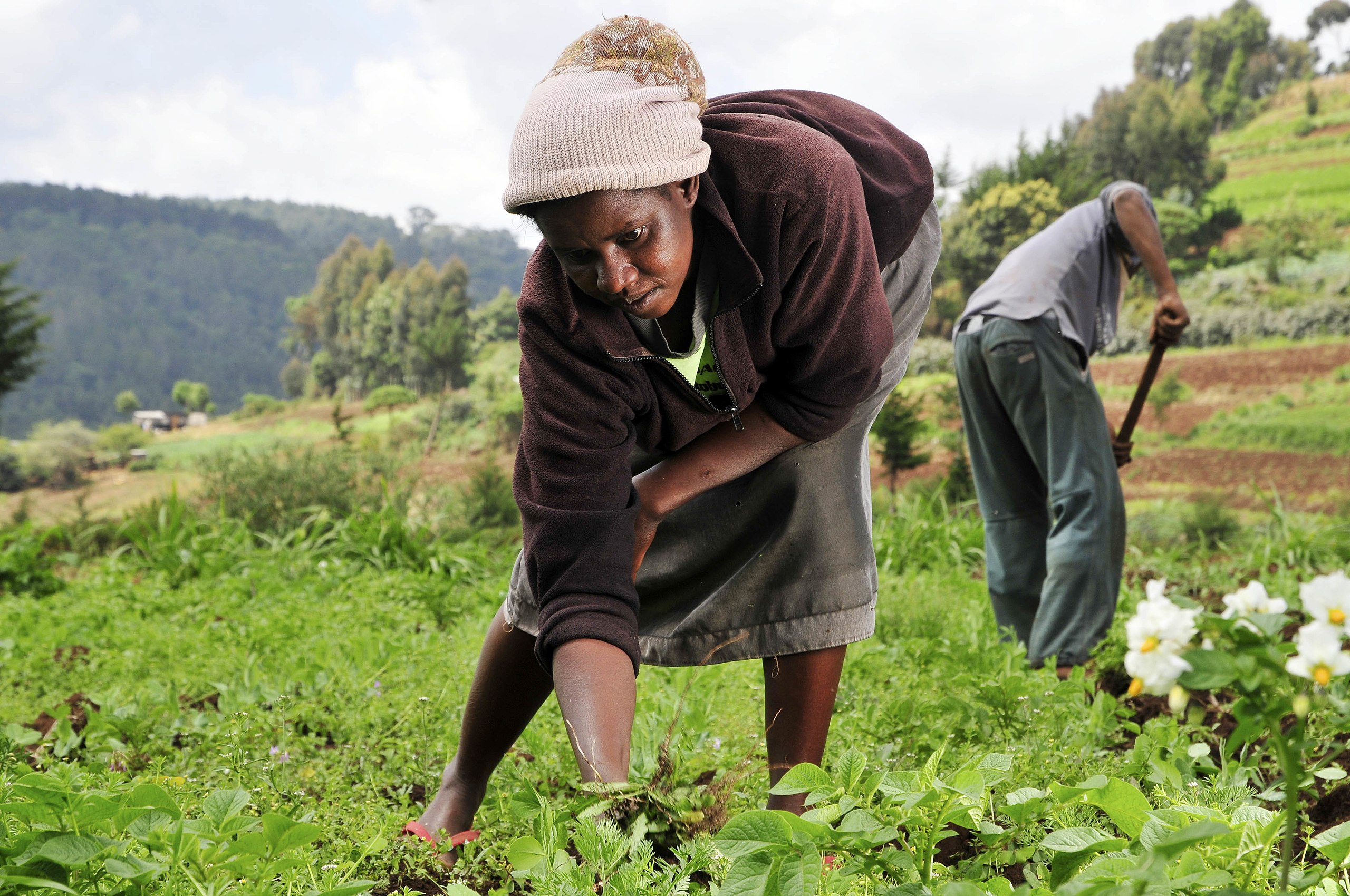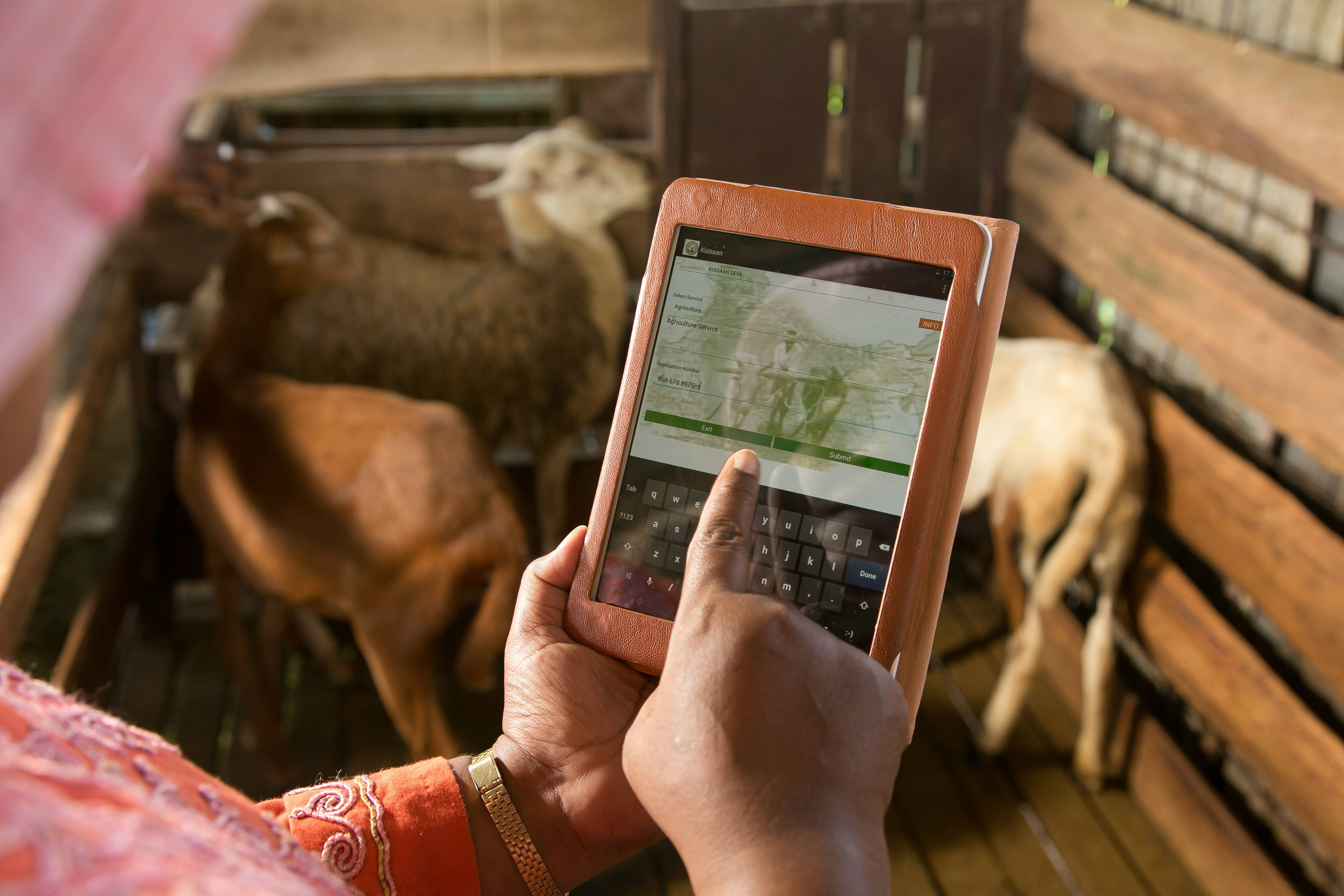Forging sustainable partnerships across the D4Ag sector
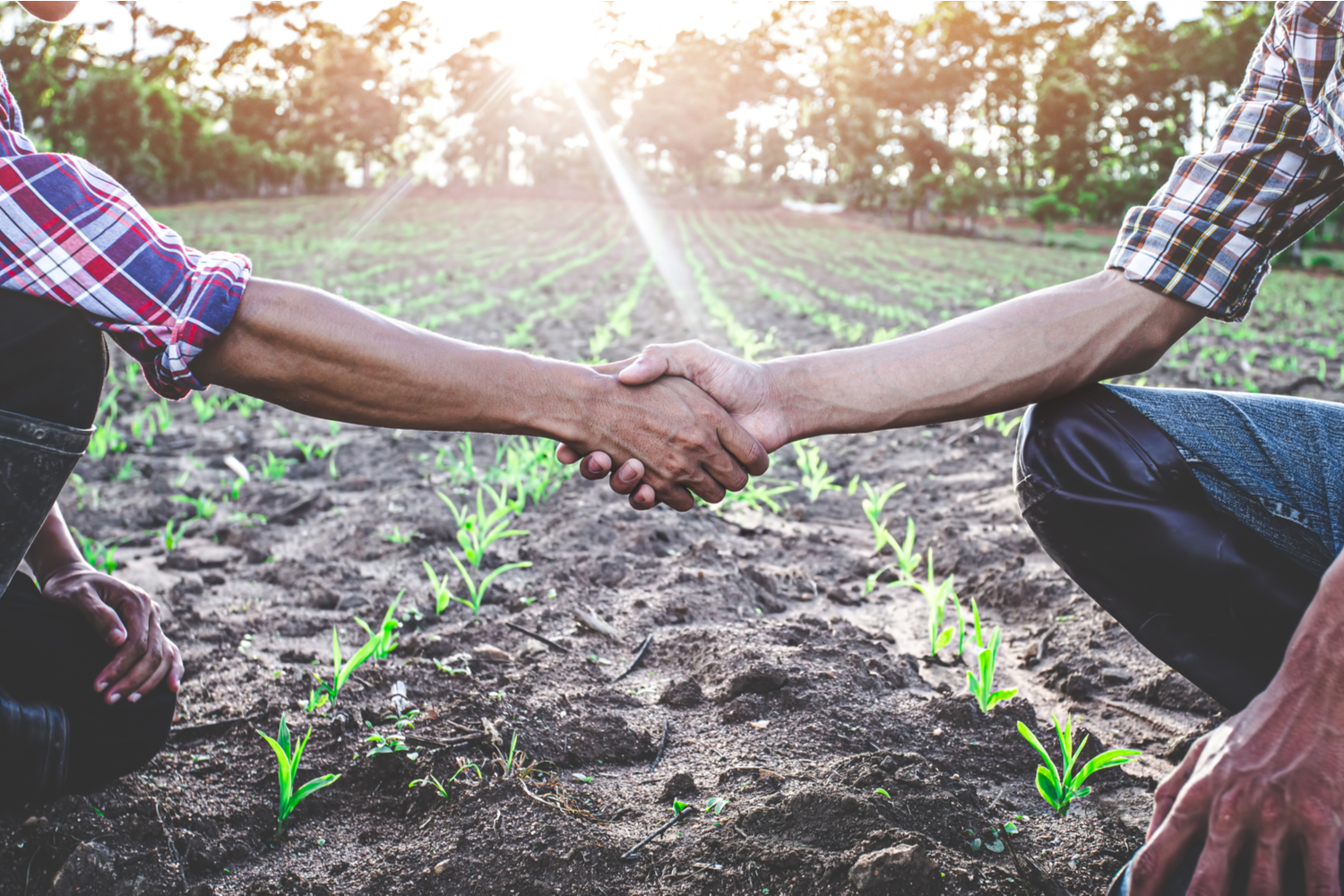
Forging sustainable partnerships across the D4Ag sector
Author: Kudzanai Chimhanda
Publish Date: 5 November 2021
With numerous actors developing, implementing and using a range of digital agriculture solutions globally, there is an urgent need to strengthen partnerships and increase investments across the digitalisation for agriculture (D4Ag) ecosystem. To this end, Digital Agri Hub acts as the connecting glue, bringing together a broad spectrum of stakeholders, and facilitating conversations around D4Ag and the potential it offers for small-scale producers in low-and-middle-income countries.
In partnership with GSMA, Grameen Foundation and the Netherlands Advisory Board on Impact Investing (NAB), Wageningen University and Research (WUR) convened the virtual launch of the Hub on 12 October, 2021, with financial support from the Bill & Melinda Gates Foundation, the United Kingdom’s Foreign, Commonwealth & Development Office, and the United States Agency for International Development. The event attracted more than 200 participants from around the world.
The Hub strives to provide a reliable and up-to-date knowledge base of digital agriculture solutions applicable to small-scale production, along with evidence of impact, tapping into the strengths of its broad and rich partnerships. Its role is designed to trigger a springboard effect, catalysing conversations and building awareness around the D4Ag sector, while improving the livelihoods of small-scale producers.
Setting the scene
On behalf of the consortium of donors supporting Digital Agri Hub, Stewart Collis, Senior Programme Officer for Digital Agriculture Solutions at the Bill & Melinda Gates Foundation, welcomed the launch. “We encourage you to engage with Digital Agri Hub to build the essential knowledge which will guide investment and adoption of digital agriculture products, solutions and services that positively impact the livelihoods of small-scale producers globally,” he said.
Sander Janssen, Digital Agri Hub Lead Coordinator, observed that the Hub’s role would lie in addressing the disconnect within the D4Ag sector, unleashing its full potential to help transform the livelihoods of small-scale producers. “There are a lot of initiatives which are happening at the same time in different regions and countries, with different technologies leading to fragmentation in the sector,” said Janssen. “It is important to know what is strong or weak, and how they can be strengthened.”
Drawing key lessons from the broad range of stakeholders, Gigi Gatti, Director for Technology for Development at Grameen Foundation emphasized the need for a structured overview of digital solutions and reliable insights on their impact. “While there are many opportunities to add value, we also need to identify how the Hub will leverage existing initiatives of the stakeholders, to maximise investments that have already been made,” she commented.

The launch introduced a user-friendly website and dashboard, which will act as a knowledge base, providing data and insights, while supporting matchmaking for inclusive digitalization with real impact on the ground. An inclusive approach has been mainstreamed into the Hub’s design to ensure that no one is left behind, while harnessing the power of digital solutions. Said Eunice Likoko, Gender and Inclusion Expert at WUR: “As we design digital agriculture solutions, we need to pay attention to the diversity of small-scale producers who exist, and have solutions that take into account excluded groups that are unintentionally left out, who are adversely affected by the digital solutions.”
Providing a critical lens on how the Hub can support development of the D4Ag sector, Danielle Tricarico, Insights Director of the GSMA AgriTech programme spoke of the importance of attracting investment. “If we can foster not only knowledge sharing but also a shared language, we can play a role in supporting scalable, commercially sustainable, impactful D4Ag services, and also drive investment, which is crucial,” she said.
Widely acknowledged as a valuable tool to support and boost investor confidence in D4Ag, the Hub sees part of its role as engaging with impact investors and opening dialogues. Simona Benvenuti, Program Manager at the Stichting Netherlands Advisory Board on impact investing said the most common challenge to investment was a complex and fragmented market. To support the investment process, she suggested that the Hub should create an enabling platform to establish partnerships between commercial players, while enabling investors to either share best practices or enter into co-funding or blended finance structures to mitigate the associated risks.
Concluding the launch, Ben Addom, Adviser for Agriculture and Fisheries Trade Policy at the Commonwealth Secretariat, acknowledged the legacy left by the Technical Centre for Agricultural and Rural Cooperation (CTA) through its Digitalisation of African Agriculture report (2018-2019), which laid the foundation for the Hub. He also highlighted the need to forge sustainable partnerships with a broad spectrum of actors if the Hub is to achieve real momentum. “Launching the initiative is one thing, and sustaining it is another,” said Addom. “We need to find ways to collaborate, go beyond pilots and reduce fragmentation.”
Insights from the participants
To ensure an interactive session, participants were encouraged to share their views related to the impact of digitalisation for agriculture, and the top priorities.


Our call to action
Strengthening collaboration and stakeholder participation within the D4Ag ecosystem was a clear message, which will have a springboard effect to create economic value for digital innovators and attract new investment opportunities, while improving the livelihoods of small-scale producers in low-and-middle-income countries.
Contact us for more information on partnerships, or to include your digital agriculture solution in our database!
